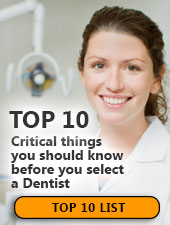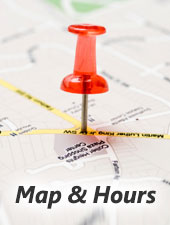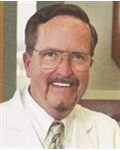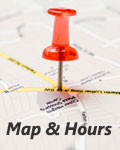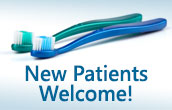Learn How Dental Hygiene, Tooth Abrasion And Over brushing Relate from Your Dental Hygienist
The issue of over brushing and its direct link to tooth abrasion has been a topic in many journal and news articles. A story in The Wall Street Journal (February 4, 2000) stated that in many cases, "the culprit in tooth abrasion is the toothbrush itself."
This issue is particularly important to because people can damage healthy teeth and gums by brushing too hard, oftentimes with a medium- or hard-bristled toothbrush. In fact, dentists and dental hygienists have a recommendation on how to brush your teeth they recommend that you use a soft-bristled toothbrush for your dental cleaning.
Your teeth and gums are susceptible to wear and tear like all other parts of your body. In cases of improper dental hygiene and brushing, such as brushing too vigorously, gum tissue can be worn away. Receding gums then lead to other significant dental problems such as sensitive teeth, periodontal disease, cavities, root canals, and, potential loss of teeth.
Your dental hygienist will explain that brushing your teeth correctly includes adjusting the angle of your toothbrush (it should be at a 45-degree angle), lessening the amount of pressure you use, monitoring the length of time, as well as making sure that you are using a soft-bristled toothbrush. In addition, always ask your dentist for specific recommendations related to your dental hygiene care and healthy teeth.
While the potential harm to healthy teeth and gums through poor dental hygiene and over brushing is significant, an even greater percentage of the population suffers damage to their teeth from occlusion (bad bite), genetic factors, and poor overall dental cleaning. It is critical to carefully maintain and monitor your oral health.
The best approach to maintaining good oral hygiene is to brush your teeth twice a day with a soft-bristled toothbrush with fluoride toothpaste, floss or clean between the teeth using an inter-dental cleaner (special brushes, picks or sticks), and visit your dentist every six months. Follow your dental hygienist's advice with regard to any changes to this regimen.
By Brian J. Gray, DDS, MAGD, FICO
«« Back to Dental Information Center
Don't Forget to Floss!
Clean between teeth daily with floss or an interdental cleaner. Decay-causing bacteria can hide between teeth where toothbrush bristles can't reach. Flossing helps remove plaque and food particles from between teeth and under the gum line.
Visit Our Office Regularly!
Take good care of your smile. Remember to visit the dentist regularly for professional cleanings and oral exams.
Mouthwash Is Important, Too!
Brushing and flossing may not be enough. The ADA now recommends using an antimicrobial mouthwash to reduce plaque and prevent gingivitis.
